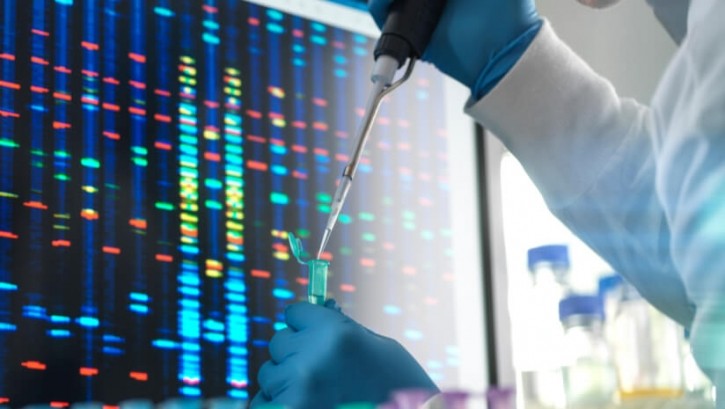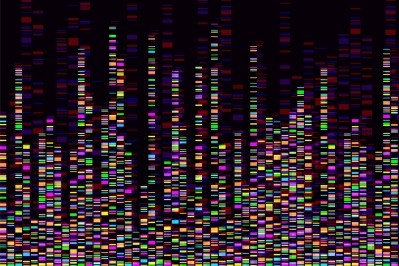Retracted! Journal pulls DNA barcoding paper that sparked 2015 NYAG herb investigation

Citing a University of Guelph investigation that found evidence of data fabrication in the 2013 paper by Dr Steven G. Newmaster et al., the journal issued a retraction notice Thursday.
According to that notice, Dr. Newmaster and three other authors disagree with the decision, while a fifth author did not explicitly state whether they agreed with the retraction.
Dr. Newmaster did not respond to our attempts to contact him. The University of Guelph did not respond to our requests for comment.
Early calls for its retraction were ignored
The 2013 paper by Dr. Newmaster and his group detailed an analysis of 44 herbal supplements from 12 companies using DNA barcoding. The researchers reported that almost 60% of the products tested contained DNA barcodes from plant species not listed on the labels.
Analytical and botanical experts widely criticized the paper at the time of its publication—notably, the American Botanical Council (ABC) was quick to call for its retraction and the American Herbal Products Association promptly submitted a letter to the journal’s editor to point out several inaccuracies.
“When we first read the Newmaster BMC paper in 2013 (as I recall, we had been sent it by the reporter from the NYTimes for his article on the paper), we immediately saw problems with it,” said Mark Blumenthal, ABC founder and executive director, adding that the failure rate reported in the study was “an alarmingly high number, and we, at ABC and BAPP, did not believe the numbers since they did not comport with our general experience regarding the evidence of adulteration of botanical products”.
“And, for us, what really raised huge questions about the validity of Newmasters’s 2013 BMC paper is the lack of any controls,” said Blumenthal. “The need to control an experiment is a paramount aspect of science. It would have been very simple for Newmaster et al to use microscopy to confirm the histology / morphology of the powdered materials from the herbal capsule – i.e., to the extent that the material was dried herbal powders, not extracts.
“And, going a small step further, it would have been very easy, and presumably very accessible to Newmaster’s laboratory, for the researchers to subject these herbal materials to chemical testing via HPLC and/or HPTLC. This could have been a relatively simple way to confirm their DNA results. But they didn’t do this, neither method. We found this to be astonishing, and very poor science.”
“And that’s why we called for a retraction of the paper from the very beginning,” he said.
The spark that lit a fire in the office of then-NYAG
Despite the criticism when the paper was first published, it not only survived but was amplified by coverage in The New York Times. The Times’ report was the spark that lit a fire in the office of then New York Attorney General Eric Schneiderman, which subsequently conducted its own controversial investigation and led to letters being sent to GNC, Target, Walmart, and Walgreens in 2015 telling them to stop selling some herbal supplements.
The principal complaints against the NYAG’s investigation centered on the misuse of the then still-immature DNA technology. Many extracts could be expected to contain little to none of the DNA of the parent material. In addition, stray bits of DNA might be detected that were immaterial, such as might arise from an excipient. It pointed to a pattern of ignorance about the realities of dietary supplement manufacturing.
AG Schneiderman’s own tests using DNA technology alleged that 79% of the products they tested didn’t contain the labeled substance or contained other non-listed ingredients.
The New York investigation expanded to engulf other herbal supplement brands, other attorneys general launched similar investigations, some of which led to settlements and/or changes to processes and business practices, with some companies agreeing to incorporate DNA barcoding into their analytical programs.
As a result, demand for DNA testing increased. In 2017, Dr. Newmaster founded the NHP Research Alliance, which aimed to advance the use of DNA testing and molecular diagnostics in quality assurance of natural health products, including dietary supplements, thereby offering a solution to an issue created by his 2013 paper.
But then things started to unravel. Questions and concerns voiced by a former collaborator led to one Newmaster publication being retracted in 2021: a 2014 paper by Ken Thompson and Dr. Newmaster was retracted from Biodiversity and Conservation after Thompson became concerned about the availability of the data, the sources of the data, and reproducibility.
The pressure builds
It was around this time that investigative journalist Charles Piller stepped in. Reporting for Science, Piller started detailing allegations of fraud, plagiarism, and missing data against Dr. Newmaster in a series of articles (see links at the end of this article).
Concerns about Dr. Newmaster’s research and findings led to a 43-page allegation letter being sent to the University of Guelph by eight researchers from UG, the University of Toronto, the University of British Columbia, and Stanford University calling for the retraction of the infamous 2013 paper.
An initial investigation at the University of Guelph cleared Dr. Newmaster of any scientific misconduct, citing “insufficient evidence”. The Editors of BMC Medicine demurred to Guelph’s investigation and stated in September 2022 that the controversial 2013 paper would be allowed to stand unchanged.
The whistleblowers, however, would not be silenced. As detailed in a recent article by Piller, Ken Thompson and seven other accusers appealed to the Secretariat on Responsible Conduct of Research (SRCR), the Canadian federal agency responsible for scientific misconduct, which eventually found that Guelph’s initial investigation was inadequate and ordered the University to launch a new investigation.
This led to the new UG investigative panel calling for the retraction of that 2013 BMC Medicine paper, which the Editor of the journal announced in a short post this week.
Shortcomings were obvious from the beginning
Stefan Gafner, PhD, ABC’s Chief Science Officer, spent a lot of time with this 2013 article after it was published and for many months thereafter.
“My first reaction is that it is a sad day for science,” Dr Gafner told us about the retraction. “All of us rely on sound data to learn, innovate, assess problems, and make decisions. If we look at the glass half full, this retraction may motivate us to be more critical when evaluating published papers. If we look at the glass half empty, we may see the eroding trust of the public in scientific data.
“The publication of the 2013 Newmaster paper using DNA barcoding to identify dietary supplement ingredients had especially far-reaching consequences as it led to the flawed investigation and subsequent regulatory actions by then NY AG Eric Schneiderman,” said Dr. Gafner. “It was obvious from the beginning that this Newmaster publication had a number of shortcomings, and that data were far from reliable. However, the accusation of data fabrication takes this to a whole other level.”
Dr Gafner noted that four of the five authors contest the findings, and he hopes there will be an opportunity to hear the arguments from both sides. “But in the end, it may be a good thing that the paper got finally retracted because the data were seriously flawed.”
Links to the articles in Science covering the allegations against Dr Newmaster:
Science, June 15, 2021: “When his suspicions went unanswered, this biologist decided to disavow his own study”
Science, October 28, 2021: “DNA barcoding paper retracted after its first author flags serious problems”
Science, February 2, 2022: “Failing the test: DNA barcoding brought botanist Steven Newmaster scientific fame and entrepreneurial success. Was it all based on fraud?”
Science, June 1, 2022: “Controversial supplements researcher not guilty of misconduct, Canadian university concludes”
Science, June 11, 2024: Star botanist likely made up data about nutritional supplements, new probe finds
















